Top 10 Things that are Considered Good Luck
Why does everything have to be negative? Answer: It doesn't. This is the inverse of my list "Things That Are Considered Bad Luck." On All Hallow's Eve, you could use these to ward off potential evil spirits or just improve your overall life. Here's just a healthy reminder: I am not superstitious.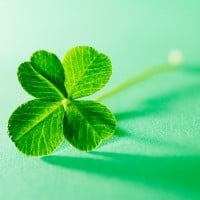
In the Middle Ages, the four-leaf clover began to be considered a lucky plant, an amulet synonymous with good fortune that gave its bearer prosperity and eternal luck. In simple terms, the four-leaved clover represented a source of peace, fame, and serenity.
That's probably the first thing that comes to mind when people think about luck.
I think the probability is 1 in every 10,000 clover in general or something like that.
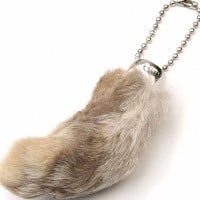
According to superstition, a rabbit's foot is only lucky when taken from cross-eyed rabbits living in graveyards. As far back as the seventh century BC, the rabbit was a symbol of luck in Africa.
I'm curious as to how you make these, I'm gonna have to Google it.
So it won't help if my dad just shoots a rabbit on his farm?
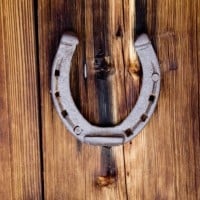
The horseshoe superstition is one of good luck and good fortune. It is believed that the good luck powers of the horseshoe date back to the story of a blacksmith named Dunstan and a man he believed was the devil. It is said that a man came to Dunstan and requested that he put horseshoes on his feet (hooves). Dunstan recognized this man as the devil and nailed a horseshoe to the devil's hoof. Seeing that the devil was in great pain, it is said that he chained him while he was in agony and only released him after the devil promised never to enter a place that had a horseshoe hung over the door. Dunstan eventually became the Archbishop of Canterbury in 959 AD and is known as Saint Dunstan. (Friendly reminder: Don't hang it upside down. The luck will fall out of it.)
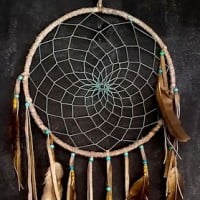
Legend has it that when the sun rises, the bad dreams caught in the dream catcher dissolve, as they cannot survive daylight. The Chippewa, or Ojibwa, Native Americans designed these dream catchers to help protect their children. The tradition is associated with the Asibikaashi, or Spider Woman, a woman from Ojibwa legend who was a caretaker of all children.
Have a few of these around the my house. My wife is half Apache.
My Great Aunt used to have one of these.
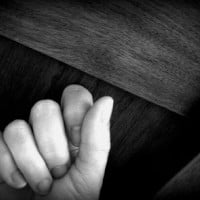
The common explanation for knocking on wood claims the ritual is a holdover from Europe's pagan days, an appeal to tree-dwelling spirits to ward off bad luck, or an expression of gratitude for good fortune.
My dad does on our dining room table, but it's not made of wood, so I don't know what he's thinking.

I wish on stars and when I see 11:11 and 1:11, I don't know if it helps but I still do it, I have a lot of bad luck so I will try anything.
I wish on a star everyday, that aren't shooting stars but I still do it, I guess I'm kind of a nerd.
I used to try and do this years ago. I don't know why though, since I never see shooting stars -w-

FremantleDockers is spot on with regards to why seven is considered lucky, but there is also more to it than the rainbow and creation. In Judaism and Islam, there are seven heavens. There are also seven continents.
Anyone know why it's considered lucky? Is it because of the number of days? Colours of the rainbow?
I like how this is #7 right now on this list.

No, I am not joking. The common goldfish is used to attract money like a moth to the flame. It is a great gift (in theory) to give a homeless person. They'd have to place it in the north or southeast sector of their home, (which evidently would be nonexistent), so there are some kinks in that theory, but if you know anyone who is suffering financially, give 'em a fish.
I have a nemo t-shirt, does that count?

This was actually a big pain in the neck to look up but in a nutshell, white cats are the opposite of black cats. (Really? I thought they were the same!) Both in regards to looks and what type of fortune you get and if one crosses your path, it's a harbinger of good fortune (although this may vary depending on where you live.)
I have a nightgown with a white cat on it, every time I where it, my day is a little better.

As a good luck symbol, acorns are said to protect one's health. Carrying an acorn is believed to protect from illnesses, aches, and other pains. If you're already ill, it is said to speed up the healing process and alleviate any pain.
When I was probably 6-7 years old, I used to get acorns from trees since it counted as "good luck".
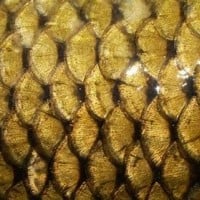
Tradition says you should keep the carp swimming in your bathtub until it's time to kill it for family dinner, but modern Poles now opt for ready-to-eat carp instead. After the fish is consumed, people will keep a few scales in their wallet or on their purse for 12 months to help with good fortune.
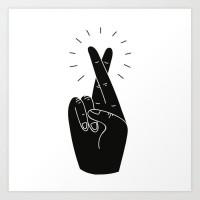
Supposedly this is meant to implore God, although I forgot how exactly.
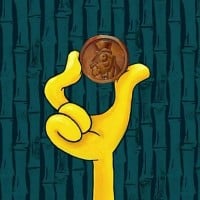
Has anyone seen the episode of the twilight zone from the 50s, about the man who threw I penny to buy a newspaper and the penny landed on its side, and he could hear what everybody was thinking? It was a good one.
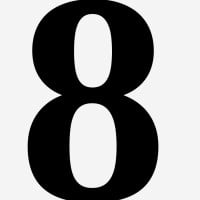
The number 8 is associated with wealth, success, and status. 8 is considered lucky and favored by the Chinese because it holds meaning in both traditional and modern cultures. In Taoist culture, 8 is associated with wholeness and completeness.
Turn it sideways, and you have infinity good luck.
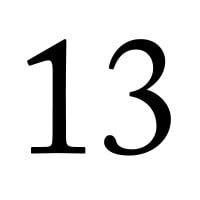
Did I lose my mind? No. As I pointed out on the inverse of this list, some nations consider 13 lucky. In Italy, "fare tredici" means you've hit the jackpot (and just so happens to mean "make thirteen") and in France 13 was considered good luck prior to WWI, and was a good luck symbol frequently put on postcards and charms.
True story, Friday the 13th is sometimes the best day of the year for me.
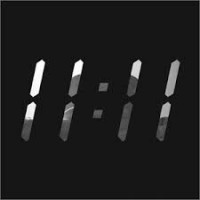
Last time I checked the clock with the same hour and minute number, it was 12:12. Is this really considered good luck though?
I make a wish every time I see this.

Looked this one up myself. One reason they're considered good luck is quite romantic. Ladybug sightings mean you are gonna have good luck with love. They are commonly associated with the fulfillment of desire, (hence the good luck with love,) protection, and yes, just plain good luck.
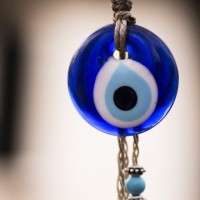
The Nazar, or evil eye, is an amulet for protection against those without good intentions. The origin of the Nazar hails from Turkey and its neighboring countries. the Nazar has no religious significance and because of this, it has become popular in countries all over the world.

So...to expound on what AlanaThePony said, In Chinese culture, the bat represents happiness and joy. Five bats together are considered to represent the "Five Blessings" (long life, wealth, health, love of virtue, and a peaceful death). The word for bat "fu" is a homophone which also means good fortune; so two bats means double luck. They are known to symbolize death and rebirth. I imagine the rebirth part is the main reason they're good luck.
The chinese word for "Bat" even means good luck.

Eggs actually symbolize fertility and rebirth in many cultures and folklore. That is what's lucky about them (hence their prominence on Easter,) and a rather weird thing about eggs being lucky is if you find a double yolk in an egg, it's thought to mean you are gonna become pregnant with twins. (Thank God this is scientifically proven to be impossible for guys.)

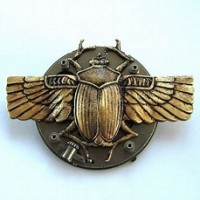
The scarab beetle as a good luck charm dates all the way back to 2345 BC. The amulet of this beetle represented new creation and eternal life and is associated with the Egyptian god of the Rising Sun, Khepri. (Thought that was Ra, but whatever.)

Ah, yes. Once again we are at the cross road of salt. Is it good luck, or bad? I'm really not the guy to ask, but I think it was explained well enough by HaiThere on his bad luck list: if it's a ton, knock on wood, but if it's a tiny bit over your left shoulder, it counters the bad luck. Right?
Ichabod Crane did this in the Disney movie The Adventured of Ichabod and Mr. Toad.